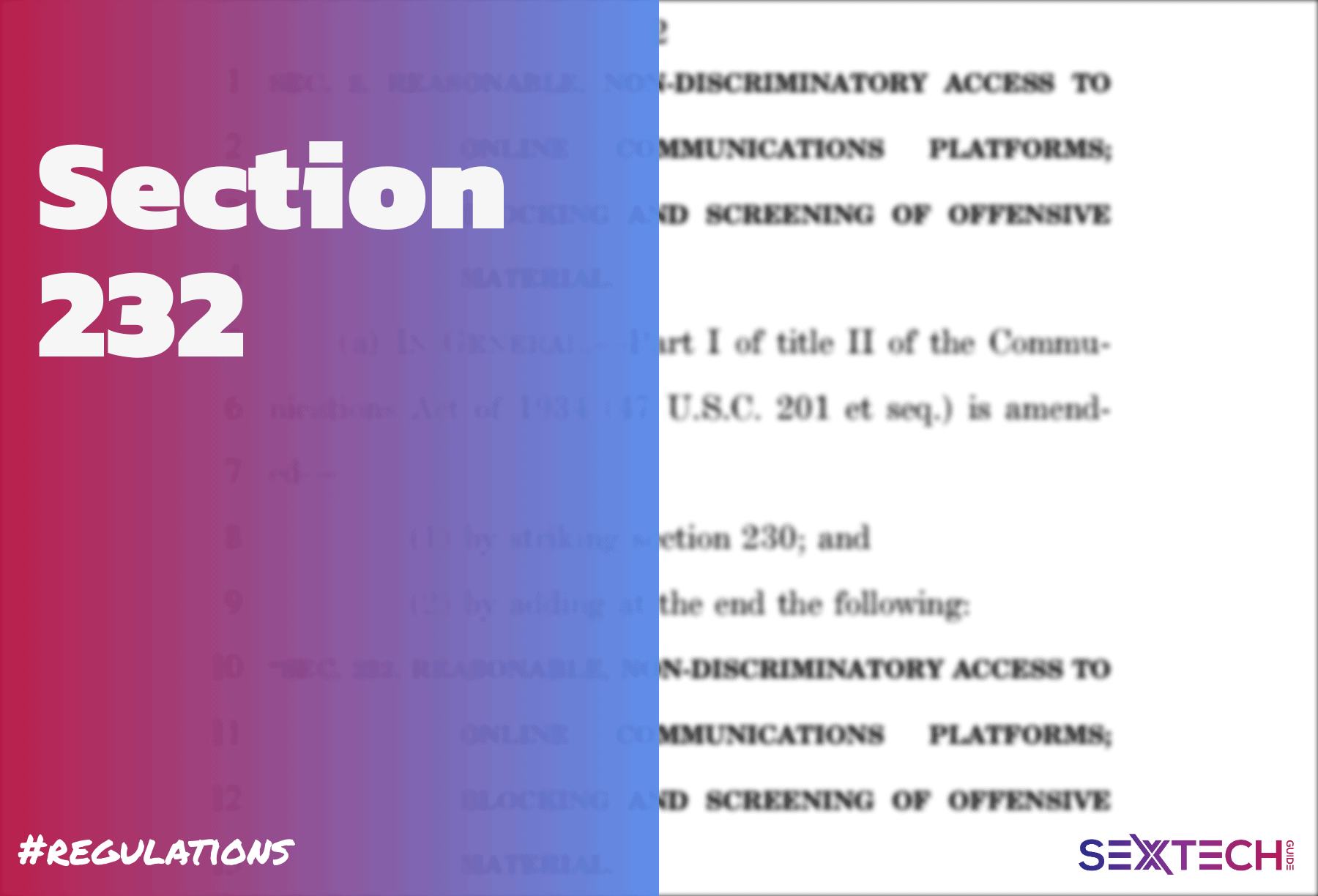A US senator is attempting to have the “First Amendment of the internet” replaced with legislation removing legal immunities for websites hosting externally-produced content, such as porn sites hosting user-uploaded videos.
A proposed bill, known as the 21st Century FREE Speech Act, would also make restriction of vaguely-defined “inappropriate” material online easier via internet blocking technology.
Also known as Section 232, the proposed legislation would replace Section 230 internet legislation, which provides legal immunity for websites from issues related to third-party content they host. Passed in 1996, Section 230 is known as the “First Amendment” of the internet and is part of the Communications Decency Act.
Section 232 was proposed on April 27 by Republican Senator for Tennessee Bill Hagerty. Even if it does not get passed, its proposal will likely add further pressure on the US porn industry, at a time when the political and legal focus on porn site liabilities and performer protections is sharpening.
Other recently-proposed US law changes, such as the Stop Internet Sexual Exploitation Act (SISEA) and SAFE TECH Act bills, would force porn sites to shore up moderation and verification processes. They are mainly designed to crack down on illegal content such as explicit material derived from sex trafficking or featuring children.
Critics say these tougher legal measures could punish legitimate sex workers using sites for income, as well as websites that would struggle to fund larger content moderation teams and processes. It is unclear how rigidly they would apply to general social media sites, compared to dedicated porn sites such as MindGeek behemoths Pornhub, RedTube and YouPorn.
If passed, Section 232 would likely cause similar concerns among swathes of the US porn industry. The legislation would put the onus of what the bill calls “control and censorship” on “interactive computer services” rather than users and other authorities. The latter phrase is thought to include websites and social media platforms.
According to the bill, this would be a move away from encouraging “the development of technologies which maximize user control over what information is received by individuals, families and schools who use the internet and other interactive computer services.”
With sites legally responsible for the external content they host, they would be compelled to be more stringent when moderating uploads, to keep illegal content off their platforms.
Some sites have already reacted to the recent uptick in media, political and commercial focus on online porn. Pornhub recently removed hundreds of thousands of videos from its platform and is revamping its moderation and uploading processes.
The proposal of Section 232 also raised concerns that it would make the censoring of adult content more widespread. The bill states that the new legislation would aid “the development and utilization of blocking and filtering technologies that empower parents to restrict their children’s access to objectionable or inappropriate online material.”
Although scrapping Section 230 would have huge implications for porn, Senator Hagerty suggested that his main inspiration for the proposal was free speech. He said that his legislation would treat big tech social media companies like “common carrier” services such as telephone providers, that do not censor communication.
Writing in the Wall Street Journal, he attacked social media companies for removing pro-conservative content. He did not specifically mention Twitter removing former US President Donald Trump’s account on the site in January, but wrote of the silencing of “mainstream American political figures”.
“Our laws haven’t kept pace with this technological reality,” he said. “The statutes governing free speech and the free exchange of ideas online haven’t been updated in a quarter-century.
“Since it was passed in 1996, Section 230 has been stretched from its original intent – the promotion of the free exchange of ideas online – into a license for companies like Facebook and Twitter to censor.”
Read next: Pornhub removed over 650K items that breached its content rules in 2020


